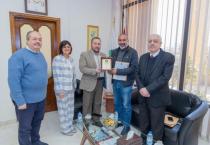
كرّم رئيس مجلس أمناء جامعة الجنان، الدّكتور سالم فتحي يكن، المحامي الأستاذ فهمي كرامي، تقديرًا لجهوده المميّزة...
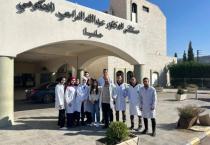
قام طلّاب تخصّص تكنولوجيا المختبرات الطّبّيّة (MLT) في جامعة الجنان، وبإشراف الأستاذة لاميتّا لقّيس، بزيارة...
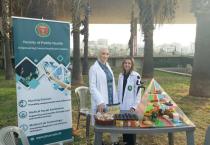
تابعت كلّيّة الصّحّة العامّة في جامعة الجنان نشاطها بمناسبة "اليوم العالميّ لمرض السّكّري" بالشّراكة مع مركز...
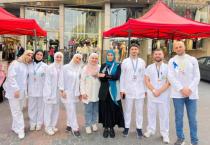
شاركت جامعة الجنان – فرع صيدا في اليوم الصّحّي الذي أقامته بلدية صيدا بالشّراكة مع جمعيّة تجّار صيدا ومؤسّسة...
Dear Public Health Students,
A warm welcome to the new academic year! I am honored to assume the role of Dean of the Faculty of Public Health and to embark on this journey with all of you. Our mission is to nurture the next generation of leaders in the field of public health.
Our commitment is to provide you with the latest knowledge, cutting-edge research opportunities, and practical skills that will equip you to make a lasting impact in the realm of public health. Additionally, we emphasize the importance of community outreach, as it is through our collective efforts that we can effect positive change.
In our faculty, you'll find a diverse range of majors offered, including Nursing Sciences, Medical Social Assistance, and Medical Laboratory Technology. However, what truly sets our faculty apart is its pioneering approach to education and research. It stands out as the sole Arab institution offering a master's program in Public Health Genetics, a distinctive offering that highlights our commitment to innovative knowledge. Besides to the Professional master’s program in Health Education that offers academic and specialized training in health education, promotion, and communication. Finally, the master’s program in Control of Infectious Diseases that is particularly vital in the context of COVID-19 and the re-emergence of infectious diseases, as it equips students with specialized skills essential for addressing the increased demand for infectious disease specialists.
In our pursuit of excellence, we encourage you to think globally and actively engage with the broader context of public health challenges. By aligning ourselves with the United Nations Sustainable Development Goals (SDGs), we can contribute to a sustainable and healthier world for all. We are enthusiastic about engaging the entire University in this effort, so that every student at our institution learns about global public health issues and how they affect their own lives.
As future leaders, it is paramount that you uphold the values of ethics and professionalism in your endeavors. We aspire to mold individuals who are not only knowledgeable but also dedicated to providing ethical and professional services that contribute to building a healthier world.
In today's world, the demand for public health professionals has never been greater. Emerging diseases, health emergencies associated with conflicts and climate change disasters, and the global pursuit of building healthier populations all underscore the crucial role public health experts play in safeguarding our collective well-being. As you embark on your academic journey within our faculty, you are not only preparing for a rewarding career, but also contributing to addressing these pressing global challenges. Welcome to a place where innovation, collaboration, and excellence thrive.
I look forward to witnessing your growth and accomplishments during your time here. Let us embark on this journey together, dedicated to the vision of creating a healthier, more sustainable world through the field of public health.

|
Alissar Yassine Haddad, RD, MPH, DBA |
The Faculty of Public Health at Jinan University is committed to advancing the professions of nursing, medical laboratories, medical and social assistance, health education, control of communicable diseases, and public health genetics by enhancing the environment necessary for developing the competencies of its professional graduates.
The mission of the Faculty of Public Health at Jinan University is to offer opportunities for its students to develop sound theoretical, applied, and clinical foundations. Students are equipped with the core competencies necessary to develop expertise in public health. This is provided by nurturing a compassionate educational environment that prepares graduates to create a positive change and to meet the health care needs of local, regional, and global communities.
The Medical Laboratory Technology Program at Jinan University provides our students with advanced scientific and technical skills that enable them to enhance their entrepreneurial proficiencies and contribute effectively to their communities. The availability of state-of-the-art laboratories at both Tripoli and Saida campuses and the intensive hands-on practice at competent diagnostic centers expose the student to diverse career options ranging from biochemical, microbiological, to genetic testing. With a large majority of medical decisions being based on diagnostics conducted by medical laboratory scientists, job prospects in the field are expected to grow strongly within the few next years. With the combination of independent thought, teamwork skills, and the ability to take ethical and social responsibilities, Jinan University graduates have carved out unique roles in traditional and non-traditional laboratory science careers.
The Medical Social Assistance Program is designed to prepare students for the rapidly growing and changing job opportunities in health and social work settings. Courses are broadly distributed across the triad of sociology, psychology, and public health. Students are mentored to develop proficiency in gerontology, management of chronic diseases, proactive health planning, and genetic counseling. Students receive off-campus training in medical practices within social settings and learn how to conduct social and professional communication with individuals, identify the social and psychological needs of patients, refer patients and their families to specialized health care workers, and negotiate with local, regional, and international organizations. With only a handful of universities offering a degree in Medical Social Assistance in Lebanon, Jinan University students are usually employed by graduation time. With experience and postgraduate training, employed graduates can advance to supervisor, assistant director, and executive director or program manager positions.
The Nursing Sciences Program at Jinan University is designed to provide opportunities for students to develop a sound theoretical and clinical foundation for the practice of professional nursing. The department hosts two Nursing Skills Labs in the Tripoli and Saida campuses whereby students work with mannequins or human simulators to help them reduce errors, improve safety, and elevate the quality of patient care. Jinan University also offers intensive clinical training for its students in partnership with major hospitals in North and South Lebanon. At this level, students acquire the necessary skills that enable them to work with patients, including those in surgery, pediatric, maternity, geriatric, and emergency wards. Nurses make up the largest workforce within the clinical industry. Employment in the nursing profession is projected to grow much further within the next decade. This growth is mainly driven by an increased emphasis on preventive care, growing rates of chronic conditions, and demand for healthcare services by the aging population.
The Professional Master's Program in Health Education is designed for individuals seeking academic and specialized training in the areas of health education, promotion, and communication. The program aims to provide students with the needed skills and knowledge to be influential and productive professionals who serve the needs of their communities through private or public sectors. The emphasis on working with individuals, organizations, and communities is the core element of the curriculum of the Master's Program in Health Education. The program offers a solid and evidence-based learning in health education with subjects including principles and theories of behavioral sciences, epidemiology, disease prevention, and advanced skills in needs assessment, program planning, implementation, and evaluation. The program gives students the opportunity to undertake a full-time supervised thesis project allowing them to obtain valuable work experience. The placement host is any institution, company, or organization within the health, healthcare, or health related industry. This includes but not limited to media, health departments, hospitals, community centers, non-profit organizations, and international organizations. With a Master's degree in Health Education, students could pursue a wide range of leadership and management positions in governmental, non-profit, corporate, and academic settings. Typical responsibilities of health educators may include preparation and distribution of materials, coordination and management of health programs, and the planning, implementation, and evaluation of health education programs. The degree also provides students with a strong foundation to pursue further education.
The Master's Program in Control of Infectious Diseases aims at providing the students with an in-depth knowledge in the fields of virology, bacteriology, mycology, parasitology, and Immunology. This multidisciplinary program will equip students with specialized skills that will allow them to investigate the transmission of endemic and epidemic infections, select appropriate methods of control, design, implement and evaluate coordinated control methods, assess constraints of local public health delivery systems, manage available resources in the context of the control of infectious diseases, and focus their efforts on particular geographical regions or specific diseases. Graduates from the program are expected to actively participate in improving the quality and safety of care as staff of health ministries, health departments, national or international disease control agencies, aid organizations or universities.
Public Health Genetics is an emerging field of study which assesses the impact of genes and their interaction with behavior, diet, and the environment on the population’s health. The Master's Program in Public Health Genetics at Jinan University is an entry-level professional degree, focused on training the students in the fundamentals of public health genetics and preparing them to become leaders in public health practice, governmental public health agencies, voluntary health agencies, community-based organizations, or non-governmental organizations around the world. The public health component of the curriculum integrates the disciplines of epidemiology, environmental health, biostatistics, patho-biology, and health services research, with ethics, social sciences, law, public policy, health economics, and health outcomes research. The genetic component of the curriculum incorporates a large array of disciplines aimed at understanding genetic susceptibility to disease in populations and communities and addressing the ethical, legal, cultural, economic, and policy issues involved in applying genomics to public health. In between these two components, focus is also given to molecular diagnostics, forensic sciences, genetic counseling, bioinformatics, genetic epidemiology, and biostatistics, just to name a few. Towards the end of the program, students will be able to explain how genetics and genomics contribute to the study of population health and how they intersect with other public health disciplines. They will also be capable using their knowledge to interpret disease risk, to identify the pathology of human diseases including rare and common genetic conditions, cancer, and chronic diseases, and to address ethical, legal, and social implications of the use of genetic principles and technologies in clinical and research settings. At a broader level, graduates will be able to translate genetic information into policy development programs and communicate such information effectively and appropriately with diverse groups of professional and public constituents. Graduates from the Master's Public Health Genetics Program are expected to assume key management roles in health organizations and provide competent leadership nationally and globally. The program also qualifies students to apply for admission for a doctoral research project at any university or research institution with focus on public health, medicine, biological sciences, and related fields.
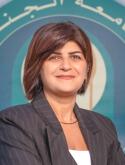
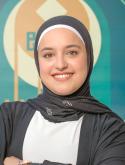
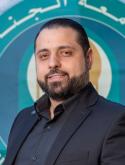
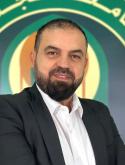

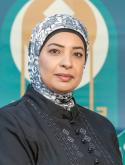

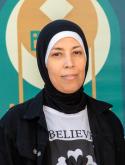
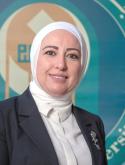
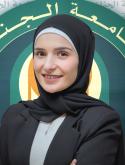
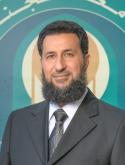


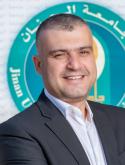
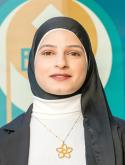


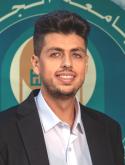
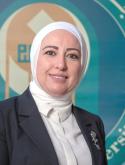
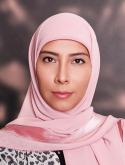
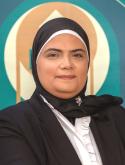
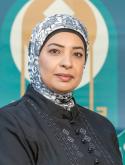
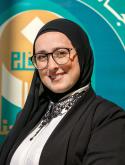

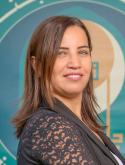


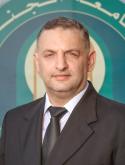
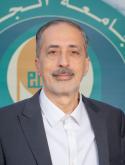

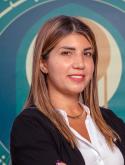
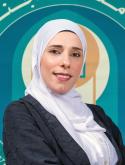
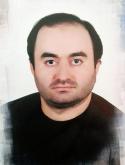








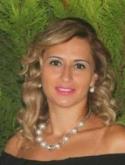


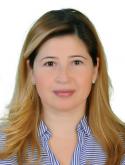

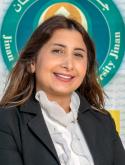

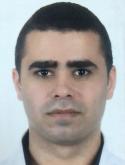







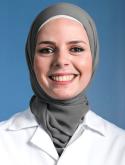

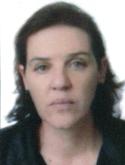

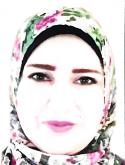
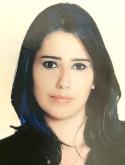



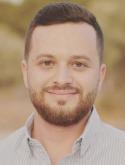



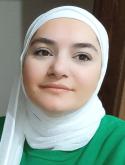



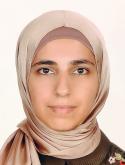


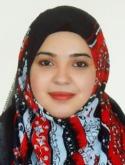


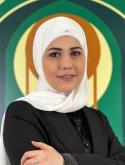
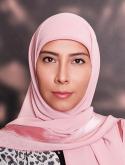
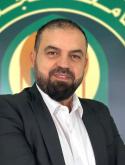
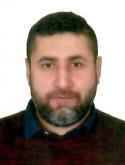
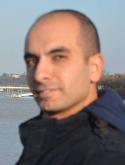
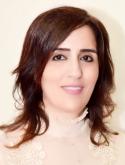
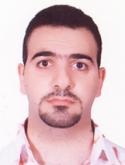


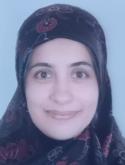

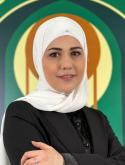
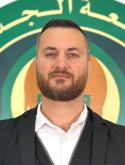














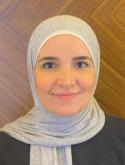



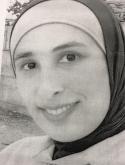






The Department of Nursing Sciences at Jinan University is committed to advancing the nursing profession by fostering an environment that enhances development of competent professional nurse graduates.
The mission of the Department of Nursing Sciences at Jinan University is to create and provide opportunities for nursing students to develop a sound theoretical and clinical foundation for the competencies essential for professional nurses by nurturing a learning environment that prepares the graduates to meet the health care needs of the local and regional community.
At the completion of Bachelor in Nursing Sciences Program, the graduate nurse will be able to:
Teaching and research at the Faculty of Public Health extend beyond its laboratories. For this, the faculty relies on agreements with numerous clinical affiliates, social agencies, and research institutes. These vital partners provide patient care and clinical training. In return, the Faculty of Public Health plays a major role in supporting these institutions through the transfer of know-how and the organization of advanced-level training courses in collaboration with leading international organizations, including, but not restricted to, the World Health Organization (WHO) and the International Committee of the Red Cross (ICRC).
Akkar Rahal Hospital was founded by Dr. Riad Rahal in 1982 as the first hospital to offer services in the Akkar Governorate in North Lebanon. The manpower at the hospital consists of 300 employees including doctors, nurses, administrative staff, pharmaceutical providers, and others. Akkar Rahal Hospital is one of the largest medical centers in the Akkar region with a capacity of 100 beds and offering services in acute care general medical and surgical care.
Website
Abert Haykel Hospital was established in year 1968 in the district of Ras Masqa south of the city of Tripoli. The hospital offered services in medicine and surgery. In 1977, the hospital was reconstructed with about 56 beds after being severely damaged during the Lebanese Civil War. At the turn of the Millenium, the hospital started offering a multitude of services. In 2007, Abert Haykel Hospital increased its capacity to 128 beds with devoted first-class sections. In the subsequent years, the hospital upgraded its Radiology and Medical Imaging department, launched a new Intensive Care Unit, renovated the Private Clinics, established a Socio Psycho Educational intervention center, and opened a new Chemotherapy Department and a Diet center. The Emergency Department of Albert Haykel Hospital is one of the most developed in the city with a dedicated pediatric emergency unit. In 2013, this department played a vital role in treating most of those injured as a result of the terrorist explosions that ripped AlTaqwa Mosque and AlSalam Mosque on August the 23rd.
Website
Dar Al Chifaa (DAC) Hospital is a healthcare provider located in the Abou Samra District in Tripoli, North Lebanon. The Islamic Medical Association laid the early foundation of the DAC Hospital in 1982 during the israeli invasion of Lebanon. It was only in year 2000 that construction began in the hospital over an area of about 16000 square meters. The hospital was officially opened in year 2008 providing services in most medical disciplines with a capacity of 150 beds. A unique characteristic of the Dar Al Chifaa Hospital is that all patient rooms are all single-bedded to offer privacy and the highest-level healthcare.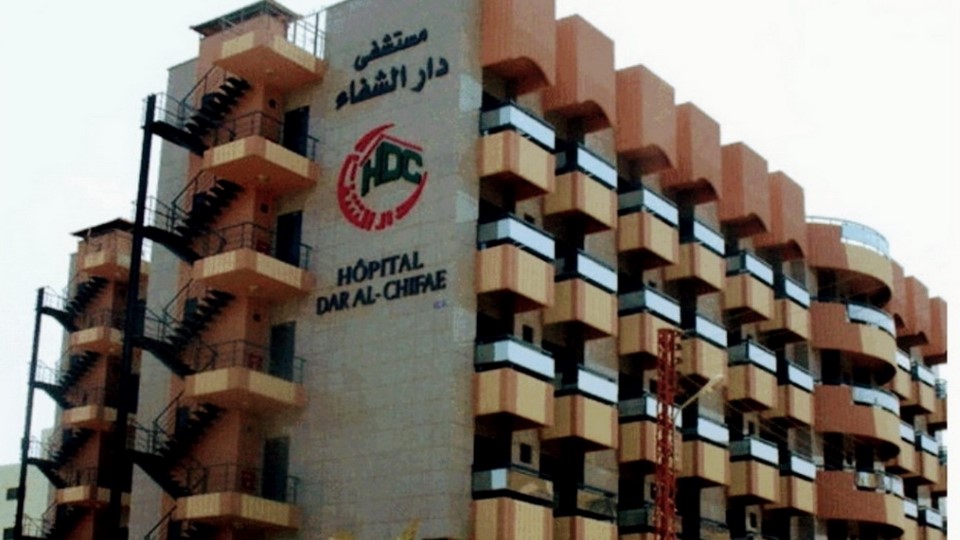
Website
Family Medical Center (FMC) is a private hospital located in Mejdlaya, Zgharta, providing almost all medical services. The hospital building is characterized by its spacious area extending over 12,500 square meters. FMC is a 120-bed facility offering a generous number of single-bed rooms.
Hammoud Hospital University Medical Center (HHUMC), established in 1966, is a 325-bed University medical center located in the city of Saida, South Lebanon. In the late 1990s, HHUMC acquired advanced medical technologies and expanded its medical services to incorporate a cardiovascular and thoracic surgery department. It was in HHUMC that the first heart transplant operation was performed in the Eastern Mediterranean Region in 1999. HHUMC currently treats more than 24,000 patients and performs more than 10,000 surgeries annually. In fact, HHUMC performs the largest number of kidney transplants in Lebanon. Currently, HHUMC offers sophisticated diagnostic and therapeutic care in various medical and surgical specialties and includes one of the largest intensive care units in Lebanon.
Website
Hamshari Hospital is the central Palestine Red Crescent Society (PRCS) hospital in Lebanon and is located within the Fat’hi Arafat Medical Compound which also comprises the main storehouse and Al Quds nursing school. The five-story hospital was established in 1987 near Al Miya Miya and Ein Al Hilwa refugee camps in Sidon and contains 80 beds. It operates 13 external clinics, a physical therapy section, a dialysis unit and many state-of-the-art fully equipped sections in addition to four operating blocks.
Website
Hanan Hospital is a private charitable non-profit secondary healthcare centre, providing acute medical and surgical care, obstetrics, and new-born nursery care for the population of Tripoli and its surrounding communities. It was established in 1994 near AlTawjih Mosque and contains 35 beds. Services available include medicine, general surgery, pediatrics, obstetrics and gynecology, nursery, celioscopy, emergency, orthopedics, urology, and otorhinolaryngology. The hospital also offers laboratory and medical imaging services.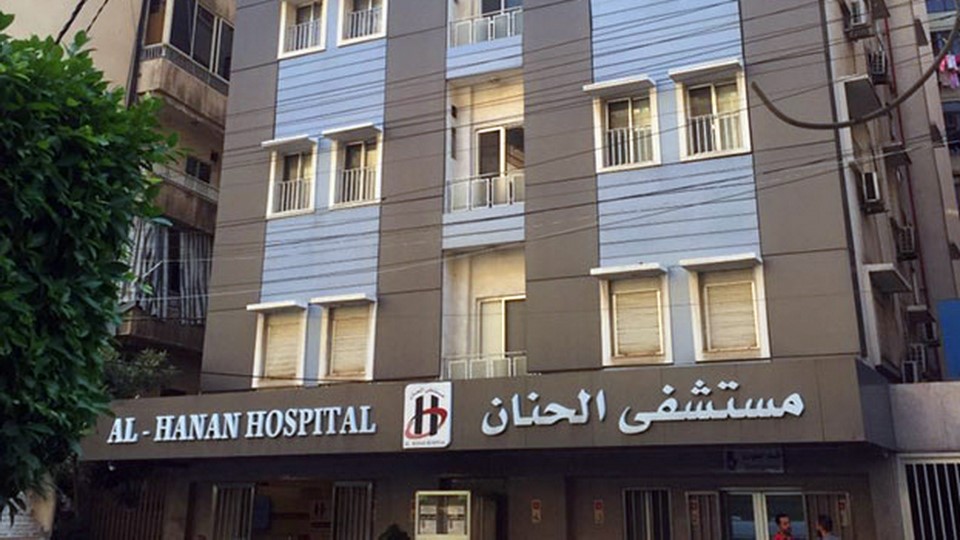 Website
Website
Al-Koura Hospital was founded in 1994 by a group of collegial doctors. The hospital has grown over time and now hosts 90 beds. Al-Koura Hospital offers services in medicine, surgery - including ambulatory surgery -, pediatrics, cardiology - including cardiac catheterization -, adult and neo-natal intensive care, uro-nephrology with a hemodialysis center, lithotripsy and gynecology-obstetrics.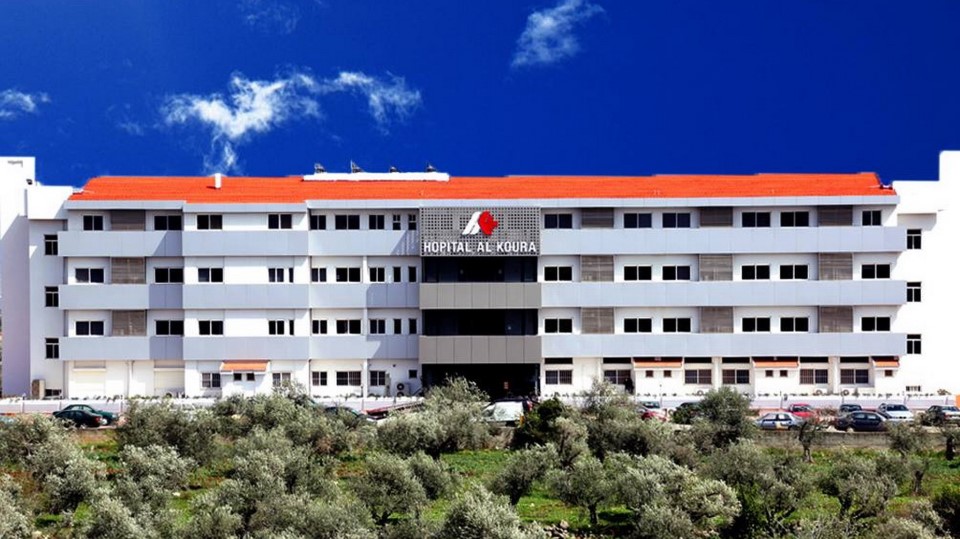 Website
Website
Labib Medical Center (LMC) has been dedicated to providing high-quality healthcare services since it was established in year 1947 by late Dr. Labib Kamel Abouzahr. The facility started as a two-story building in the heart of Saida, South Lebanon, and was known as Al Ahli Hospital. By 1974, Al Ahli Hospital expanded rapidly to meet the needs of a growing population and was eventually relocated to a much larger facility, where Dr. Abouzahr renamed the institution as Labib Medical Center. Over the years, LMC enlarged its capacity from 52 beds to 137 beds, and has expanded its scope of services to include Cardio-Thoracic Surgery, Neonatal Intensive Care, Oncology, Pediatrics, Neurosurgery, Endoscopic Spine Surgery, Endovascular Coiling for Brain Aneurysms, and many other core specialties.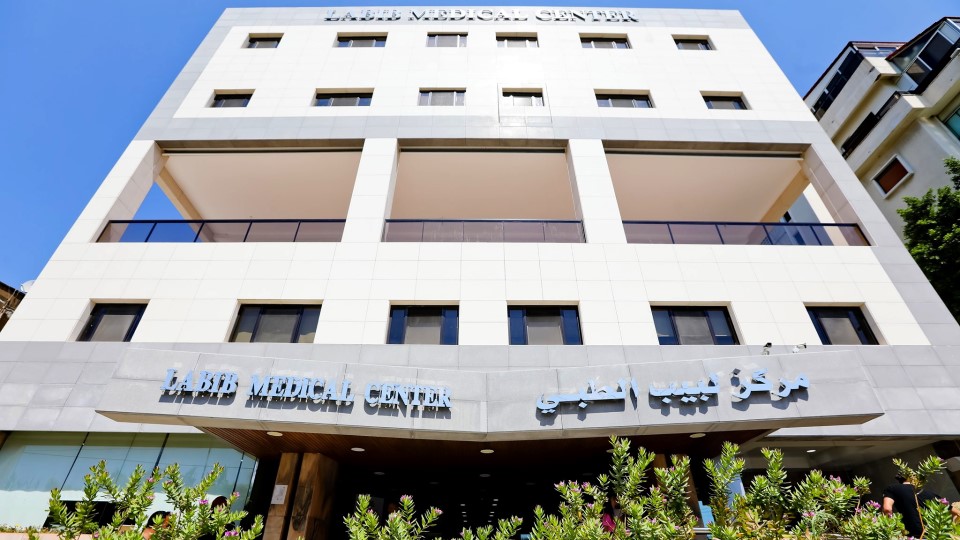
Website
Menyeh Governmental Hospital was inaugurated in 2016 and includes 40 beds. The hospital provides a variety of medical services, laboratory tests and X-rays to the population of Menyeh region and its suburbs in accordance with health and medical standards in Lebanon through a qualified and experienced staff. Menyeh Governmental Hospital also has equipment that meets scientific requirements and medical diagnostic needs to provide quality care that guarantees safety for patients and visitors.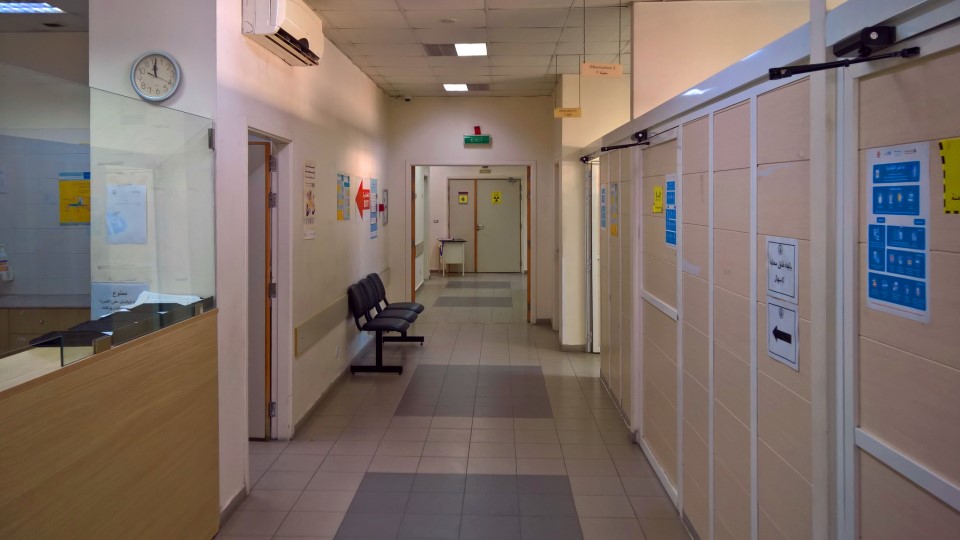
Website
Monla Hospital was founded in 1957, in the city of Tripoli, North Lebanon. Established by Dr. Tarek Monla, the hospital has pledged to provide comprehensive healthcare across various specialties and disciplines by qualified doctors and staff. As Lebanon’s landscape has shifted and transformed, Monla Hospital has undergone tremendous improvements in infrastructure and has significantly expanded the number of beds and services provided in a large array of medical departments and disciplines. In 2016, the hospital launched an ophthalmology department with state-of-the-art equipment and started offering comprehensive eye care covering a wide range of medical and surgical procedures.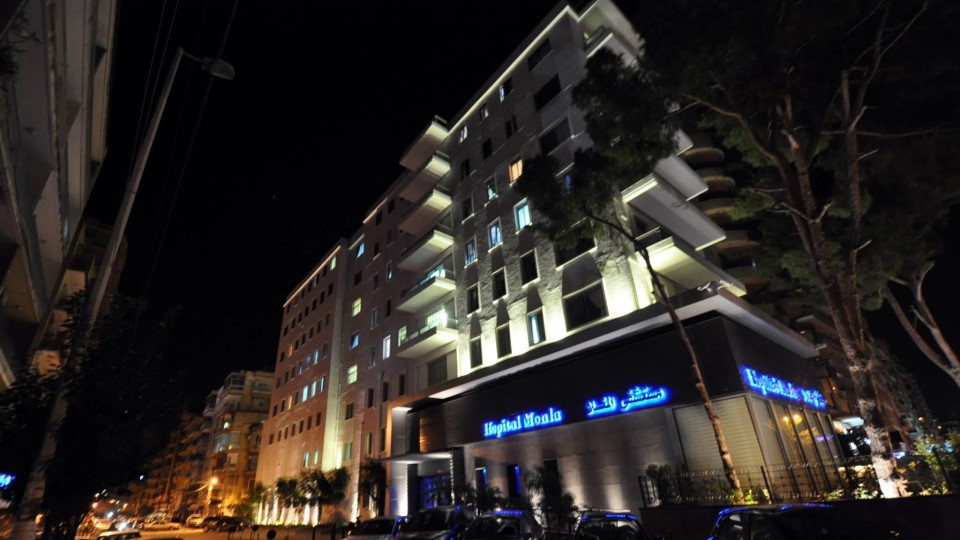
Website
Established in 1968 by the Mazloum Brothers, Dr. Nazih and Dr. Wajih Mazloum, the hospital was a hub in health care and medical services. In year 2000, the hospital, located in Tripoli, North Lebanon, was transformed into a company under the name of New Mazloum Hospital S.A.L.. The hospital team consists of more than 300 employees and currently includes 103 beds distributed over more than 13 medical departments: Emergency Department, Department of Surgery, Department of Day One-Day Surgery, Department of Internal Medicine, Department of Obstetrics, Department of Pediatrics, Department of Neonatal Resuscitation, Department of Cardiology, Department of Diagnosis of Cardiac Diseases, Department of Resuscitation, Department of Operations, and Stroke Unit.
Website
Built in 1972, this mother-child unit belonged to Dr. Ghossein, who sold it to the Dutch government in 1978. The Dutch government offered the institution to the Lebanese government in year 1978, which in turn named it the Orange Nassau Governmental Hospital in reference to the Dutch royal family. Following its destruction in during the Lebanese Civil War, the hospital was renovated and brought back to full functionality in year 2002. Orange Nassau Governmental Hospital is the only governmental specialty hospital in Lebanon with extensive services in obstetrics and gynecology, newborn care, and kidney dialysis.
Website
Raee Hospital was established in 1984 in the city of Saida, South Lebanon. The hospital consists of a 150 patient beds and offers its patients and the community a wide range of medical, surgical, and diagnostic healthcare services. Major units in the hospital include: Anesthesia, IVF, Emergency, One Day Surgery, Special Care, NICU, Medical Surgical, Pediatrics, OBSGYN, Chemotherapy, and Radiology. In addition, the hospital also includes Outpatient Clinics and offers Dietetics and Food Services.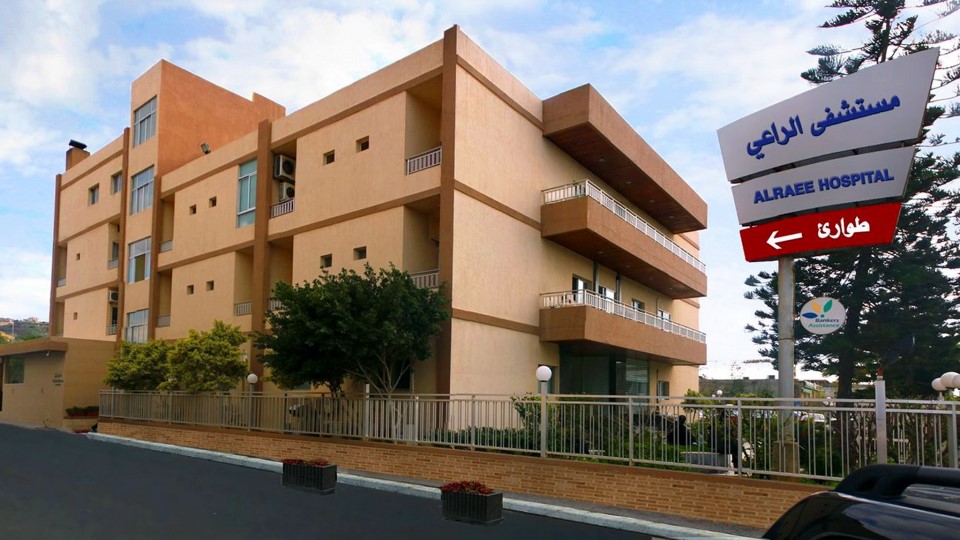
Website
Saida Governmental (SG) Hospital is a public hospital located in the city of Saida, South Lebanon. The hospital hosts 64 beds and serves the community surrounding the area. SG Hospital consists of four floors: The ground floor includes the Office of Information (Reception), Admission Office, Waiting room (Lobby), Administrative Offices, Laboratory Department, Radiology Department, Lithotripsy Department, Emergency Department, Endoscope Unit, One Day Surgery (ODS), Stress test nerves and muscles Room and EEG-EMG Room. The first floor includes the Obstetrics, Pediatrics and Dialysis Departments. The second floor comprises of the Medical, Surgical, and Intensive Care Departments, Basement includes the Operation Room Department, Delivery Department, CSSD, and Service departments in addition to warehouses and Archives and Forensic Department. The Outpatient Department (OPD) is located in the old building. Saida Governmental Hospital played a prominent role in curbing the spread of Covid-19 in South Lebanon.
Website

The World Health Organization Collaborating Centre (WHO CC) for Health Research and Bibliometrics (LEB-11) at the Faculty of Public Health at Jinan University is a research center that works in partnership with the WHO Regional Office for the Eastern Mediterranean (WHO-EMRO) to advance knowledge and understanding in the field of health research priority-setting and in bibliometrics. Bibliometrics is the use of statistical methods to analyze and measure the impact and significance of scientific literature.
The WHO CC for Health Research and Bibliometrics conducts research on a wide range of health-related topics, with a focus on using bibliometric techniques to evaluate the performance and impact of health research. This includes analyzing trends in the health research literature, identifying key research areas and gaps, and assessing the productivity and impact of individual researchers and research institutions.
The WHO CC for Health Research and Bibliometrics also works closely with the WHO-EMRO and with other collaborating centers to provide training and support in bibliometric methods and to assist in the development of health research policy.
Additionally, the center may also provide support to the WHO-EMRO in monitoring and evaluating the performance of health research systems at a national and international level and contribute to the development of evidence-based health policies.
Overall, the WHO Collaborating Centre for Health Research and Bibliometrics plays a vital role in advancing knowledge and understanding in the field of health research and providing valuable insights to inform policy and decision-making at the WHO.
The Terms of Reference and current/future activities for the WHO Collaborating Centre for Health Research and Bibliometrics at the Faculty of Public Health at Jinan University aim to support:
Research activities at the WHO Collaborating Centre for Health Research and Bibliometrics at the Faculty of Public Health at Jinan University focus on the development of new tools to analyze health research publications to identify patterns and trends in research, study the impact of research on health outcomes, identify areas where more research is needed, and track the progress of research on specific health issues.
Title: Development of an Eastern Mediterranean Region search strategy for biomedical citations indexed in PubMed.
Research Group: Ghazi Tadmouri and colleagues.
Key Findings: A refined search strategy in PubMed containing elaborate syntaxes were developed and optimized to maintain a proper balance between sensitivity and precision of the obtained results on health research in the EMR. Publication productivity increased nearly five-fold in the EMR from 2004 to 2013. Five countries; namely, Islamic Republic of Iran, Egypt, Saudi Arabia, Tunisia and Pakistan - contributed to 80% of all EMR publications.
Download Article
Title: Biomedical and health research geography in the Eastern Mediterranean Region.
Research Group: Ghazi Tadmouri and colleagues.
Key Findings: Regional share of global health related research ranged from 0.85-2.36% of total PubMed indexed publications during the period 2004-2013. Overall, 2.35 articles are published per 100 000 population per year. Kuwait maintained the highest per capita publication, followed by Tunisia, Lebanon, Qatar and Islamic Republic of Iran. Qatar, Islamic Republic of Iran and Saudi Arabia demonstrated the highest "per capita" population growth in publications. Three academic institutions accounted for over 10% of all publications that were led by an investigator from the Region. Collectively, the most prolific 25 EMR institutions published 44% of all published biomedical and health research in the EMR. Biomedical and health research needs greater encouragement and support in the least prolific countries of the EMR. It is anticipated that the concentration of biomedical and health research in EMR academic institutions would help in translating knowledge into public health outcomes, if more suitable conditions are provided.
Download Article
Title: Landscape of Biomedical and Health Research in the Eastern Mediterranean: A 15-Year Analysis
Research Group: Ghazi Tadmouri and colleagues.
Key Findings: This is an ongoing big data research study supported by the World Health Organization - Regional Office for the Eastern Mediterranean; Division of Science, Information & Dissemination.
The WHO Collaborating Centre for Health Research and Bibliometrics at the Faculty of Public Health at Jinan University offers a variety of bibliometrics services that include:
The WHO Collaborating Centre for Health Research and Bibliometrics at the Faculty of Public Health at Jinan University offers training sessions and capacity building activities on the use of bibliometric techniques for evaluation and assessment of research on health.
Dr. Ghazi Tadmouri, Head of the WHO Collaborating Centre for Health Research and Bibliometrics at the Faculty of Public Health at Jinan University, presented some of the latest and on-going research findings of the center at the Eastern Mediterranean Association of Medical Editors' (EMAME) webinar that was held on the 20th of December 2022 at the premises of the WHO Regional Office for the Eastern Mediterranean, Cairo, Egypt. More information is available at the following link: [https://www.emro.who.int/entity/emame/].
The WHO Collaborating Centre for Health Research and Bibliometrics at the Faculty of Public Health at Jinan University is open for collaborations aiming at, but not restricted to:
Ghazi Omar Tadmouri, Ph.D., FRCP Edin
Head, WHO Collaborating Centre for Health Research and Bibliometrics (LEB-11)
Faculty of Public Health
Jinan University
In 2012, the Faculty of Public Health initiated a large-scale project to upgrade and expand its main teaching laboratories at both the Tripoli and Saida campuses. This achievement transformed the way teaching is offered at the various programs offered by the faculty.
This facility is located one floor below the ground level in the main building in the Tripoli Campus. It is an impressively generous space divided into four independent sections that serve as both teaching and research laboratories for the faculties of Public Health and Sciences. The main laboratory’s infrastructure has been designed according to professional standards that suit and complement the implementation and utilization of a wide range of scientific equipment and machinery. The laboratory is provided with constant air conditioning and proper ventilation to ensure convenient working temperature for individuals as well as for experimental material and supplies.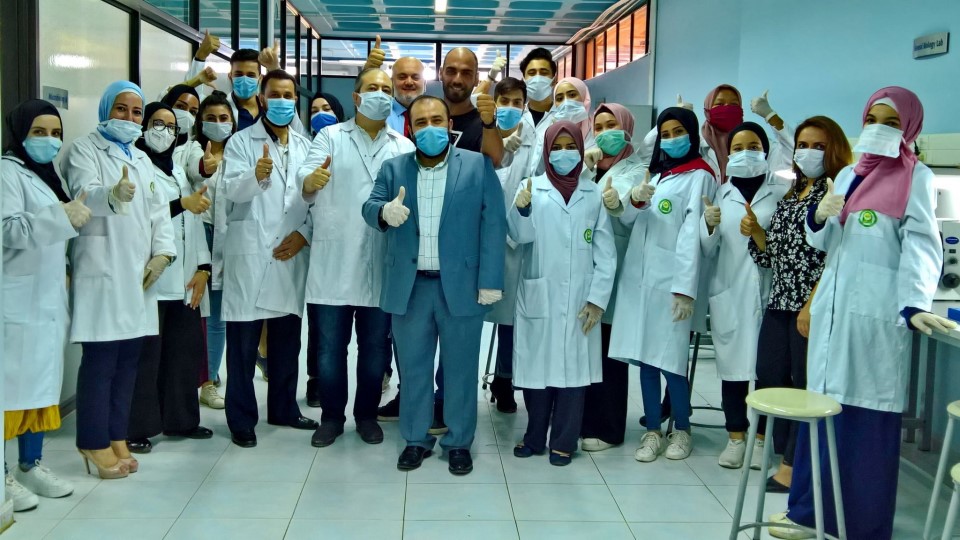
The first section, entitled as the Biochemistry Laboratory, provides ample and effective learning space for all topics pertaining to chemistry and biochemistry concepts and principles. The Biochemistry laboratory includes a wide array of top rate equipment and supplies typically found in advanced and professional chemistry and biochemistry lab settings. Safety measurements are of monumental importance in this lab and are ensured by the installment and availability of safety tools and equipment to which the students are accustomed at the beginning of every semester. These include but are not limited to chemical fume hoods, safety showers, eyewash stations and fire extinguishers. This section of the main laboratory is also provided with an overhead projector which aims to serve in a more comprehensive learning experience through the demonstration of explanatory videos and oral presentations.
The second section of this facility, entitled as the Microbiology Laboratory, serves as the perfect playground for all techniques, protocols and equipment necessary for the examination and assessment of the microbiological world and all its related fields. This lab is perfectly equipped to ensure aseptic techniques during the preparation of media and the handling of microorganisms and their culturing. This area, similar to the Biochemistry Laboratory, is organized to accommodate up to 12 students per laboratory session. With 8 stations, set up to meet the requirements of a microbiologist, students can work in pairs; two students per station. The available equipment includes but is not limited to the following: incubator, autoclave, Bunsen burners, analytical balance, vortex mixers, hot plates and all other microbiological tools found in typical microbiological settings.
The third section is entitled as the General Biology Laboratory and represents the common area of the facility which is supplied with a significant number of microscopes and a general-purpose working space. In 2014, the World Health Organization supported this section with the establishment of a specialized medical parasitology facility, which is used for training of trainees as well as to support undergraduate education in the Medical Laboratory Technology program.
The fourth and final section of the main laboratory encompasses the Control of Infectious Diseases Laboratory, which is as advanced facility that serves graduate students and researchers at the faculty working in the domains of infection control and microbial diagnostics.
Located at the premises of the Faculty of Public Health, this lab allows the students to work on many pharmaceutical aspects. Among the most important are: plant harvesting, extracting medical materials and the manufacturing of these materials in pharmaceutical forms and validating the manufactured drug.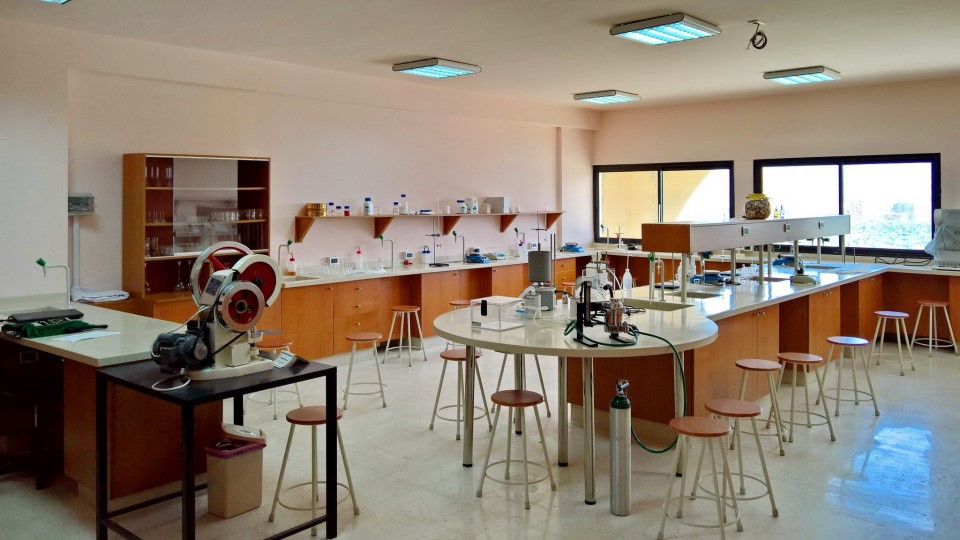
These two facilities are located at the premises of the Faculty of Public Health and contain a health assessment laboratory and a ward unit practice area. The Nursing Skills Labs provide an immersive learning environment where students can utilize the available mannequins and equipment to translate theoretical knowledge into a safe clinical experience. Both laboratories are well-equipped with a large number of nursing clinical skills simulators representing various developmental stages (fetal, newborn, childhood, adolescence, and adulthood). In some instances, students also assume the role of patient in activities that include a range of motion exercises, positioning of the patient, transfers from bed to chair, patient teaching exercises, physical assessment, and others.
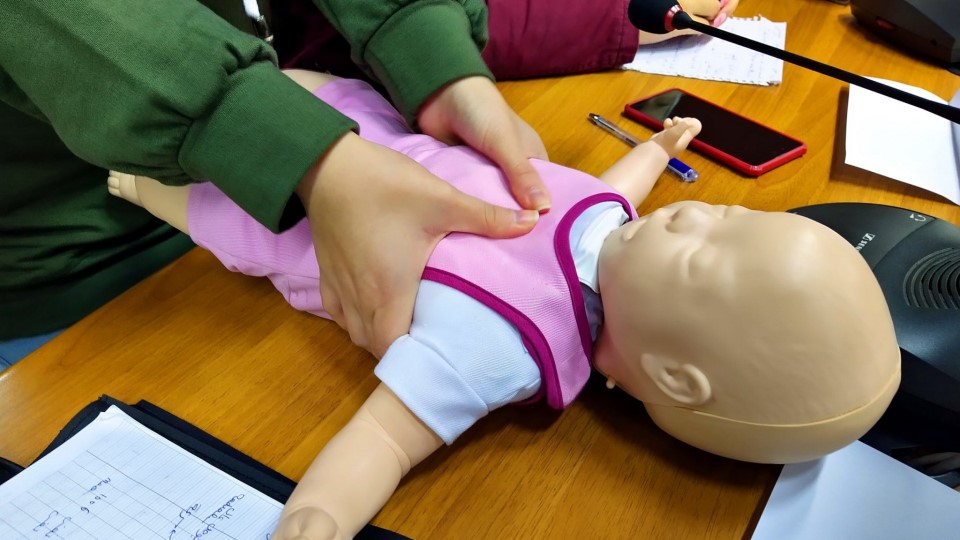

Public Health Genetics Laboratories offers graduate students a hands-on experience to utilize the laboratory tools of molecular biology to relate changes in the structure and sequence of human genes to functional changes in protein function. Students and researchers use these labs to perform diagnostic testing, reference testing, and disease surveillance to study population groups in terms of health and disease. Just to name a few, some of the molecular techniques that are routinely practiced in these laboratories include genomic DNA extraction, gene amplification by PCR, diagnostic gel electrophoresis, and bioinformatic analysis.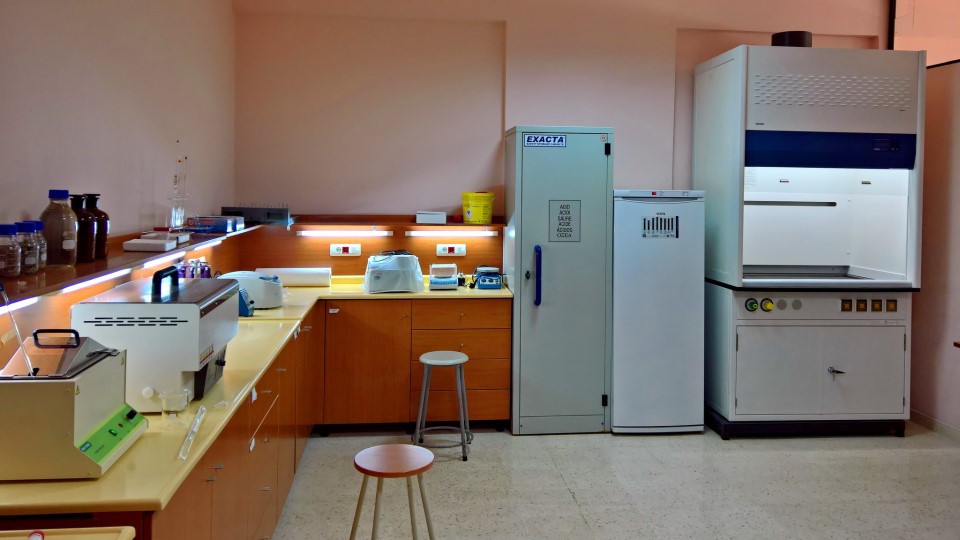
This facility provides the students with advanced training skills in the fields of biology, microbiology, chemistry, biochemistry, and genetics. It features high-tech equipment and advanced teaching aids that allow students to perform many laboratory tests and help them develop their practical skills and obtain the necessary knowledge to pursue their studies in public health especially in the Medical Laboratory Technology program.

This facility contains a health assessment laboratory and a ward unit practice area. The Nursing Skills Laboratory provides an immersive learning environment where students can utilize the available mannequins and equipment to translate theoretical knowledge into a safe clinical experience. Students also assume the role of patient in activities that include a range of motion exercises, positioning of the patient, transfers from bed to chair, patient teaching exercises, physical assessment, and others.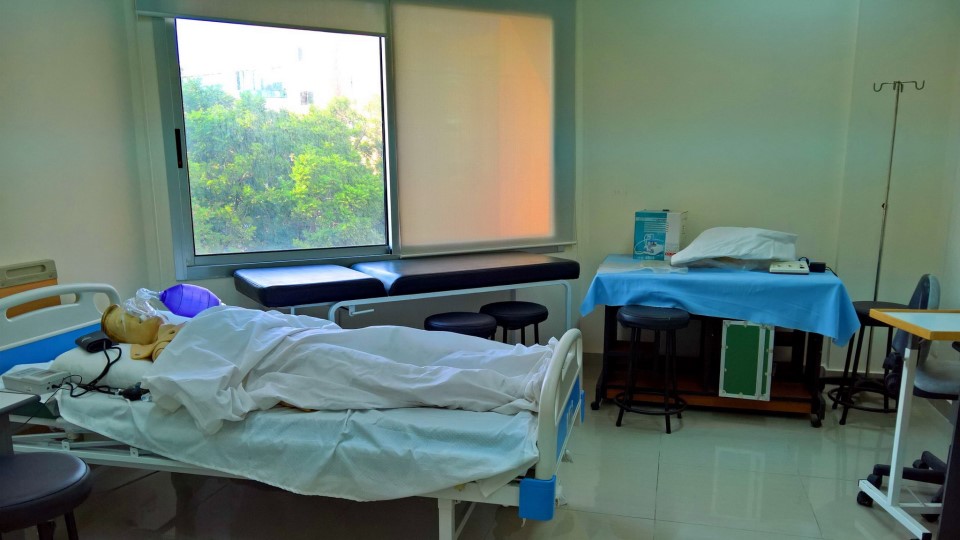
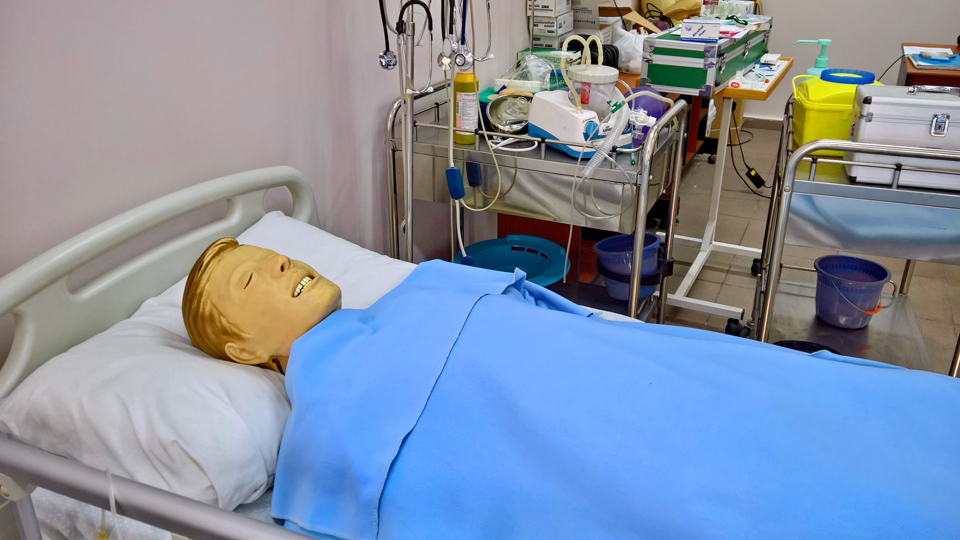
Members of the Faculty of Public Health are actively engaged in research. Some of the research projects are conducted in collaboration with local, regional, and international science groups. Main research areas at the faculty cover many important aspects of health, including:
The Ethics Review Board (ERB) consists of a committee which provides an independent check to ensure that principles of ethical research are observed by faculty and students engaged in research at the Faculty of Public Health at all stages of the research process. The board, established in 2017, consists of members who are either affiliated to Jinan University or other universities or may represent health care institutions based in Lebanon. ERB members are nominated by the Dean of the Faculty of Public Health and are appointed by the President of Jinan University. Collectively, ERB members have expertise in a broad range of public health disciplines, methodologies, ethics, law, and community perspectives.
Evidence-generating research involving human participants is submitted to the Ethics Review Board to guarantee that researchers carefully manage their data, and that the principles to protect the privacy of participants are complied with. Principles also include, but not limited to, non-malfeasance and beneficence, informed consent, confidentiality and protection of data, and academic integrity. As an independent board, the ERB has the authority to approve, reject, propose modifications to or withdraw approval of any eligible projects submitted for review.
Follow us on